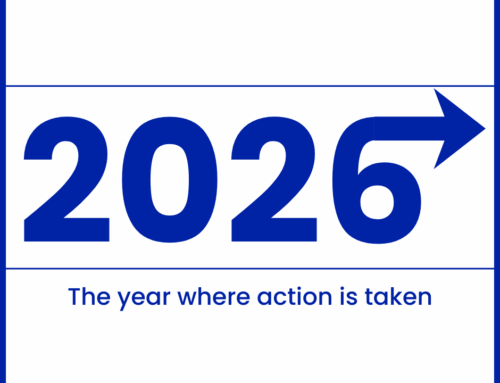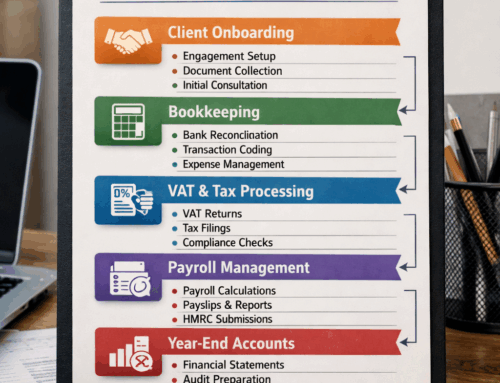Bridging the Skills Gap: Preparing Your Staff for the Future
AI isn’t “coming” to accounting anymore. It’s already here.
It’s automating reconciliations, flagging anomalies, speeding up reporting and making manual tasks… well, very manual.
For accounting firm owners and managers, the challenge isn’t whether to adopt AI. It’s whether your team is ready for it.
The firms that thrive in the next decade won’t be the ones with the flashiest tools.
They’ll be the ones with the most adaptable, skilled and confident people.
Here’s how to start bridging that skills gap.

Build AI Literacy, Not Fear
Let’s start with the big one: clarity.
Many staff aren’t resistant to AI — they’re just unsure what it actually means for their role. And uncertainty breeds resistance.
Instead of overwhelming your team with buzzwords and tech jargon, focus on building AI literacy.
This means:
Running introductory workshops explaining what AI is (and what it isn’t) in real, practical terms.
Showing how AI tools actually fit into their daily workflow.
Helping them understand the difference between automation, assistance and replacement.
When staff understand that AI isn’t here to take their job, but to take away the bits they never wanted to do anyway, the dynamic shifts.
It becomes curiosity, not concern.
As a leader, your role is to frame AI as a capability enhancer, not a threat. When the message is clear from the top, it filters down fast.
Shift From Task Skills to Thinking Skills
AI will handle more of the repetitive processes.
That’s a fact.
So your upskilling strategy needs to focus on what AI can’t replace: human thinking.
Encourage development in areas like:
Critical thinking and problem solving
Client communication and relationship management
Advisory and strategic analysis
Interpretation of AI outputs and data
For example, instead of training staff purely on how to complete reconciliations faster, train them on how to:
Interpret trends in the data
Spot anomalies AI flags
Turn numbers into insights clients actually care about
This moves your team from “doers” to “advisors” — and it future-proofs their careers while improving your firm’s value.
Make Learning Continuous, Not One-Off
One training session won’t cut it.
AI and automation tools are moving fast, which means upskilling has to be an ongoing process — not a tick-box exercise.
You can build this into your practice by:
Setting regular learning sessions or “AI update” meetings.
Giving staff dedicated time each month for development.
Creating internal knowledge-sharing sessions where team members teach each other.
Investing in online platforms or industry training providers focused on AI in accounting.
The key here is making learning part of the culture — not an interruption to it.
And don’t forget: if your staff see that development is prioritised, they’ll feel more secure, more valued and more willing to evolve with your business.
Managers and Owners Must Lead From the Front
This one’s non-negotiable.
You can’t future-proof your team if you’re not future-ready yourself.
As a practice owner or manager, your upskilling should include:
Understanding how AI tools integrate into your firm’s processes.
Staying up to date on industry changes and new tech.
Learning how to manage teams in a more digital, data-driven environment.
Developing confidence in change management and digital leadership.
When your staff see that you’re learning too, it creates a culture where growth feels shared — not forced.
You’re no longer the person dragging the team forward.
You’re the one walking with them.
Team Support: Growing Together
Let’s be honest — this shift is new for everyone.
No one walked into accounting ten years ago expecting to work alongside AI.
And that’s exactly why team support matters.
Encouraging collaboration, open conversations and shared learning helps remove fear and replaces it with momentum.
When teams support one another:
Knowledge spreads faster
Confidence improves
Stronger bonds form
And your firm becomes more resilient as a whole
Upskilling shouldn’t be an isolated journey.
It should be a team sport.
The more connected your people feel, the more capable they become.
What Does the Future of AI in Accounting Really Look Like?
AI will continue to evolve — and quickly.
In the future, we’ll likely see AI handling:
End-to-end transaction processing
Real-time performance forecasting
Automated compliance updates
Predictive risk analysis
Client insight generation
Instead of just helping with the numbers, AI will help tell the story behind them.
But will it go too far?
Possibly — if we let it.
AI should support decision-making, not replace judgement.
It should enhance human expertise, not eliminate it.
And no, we don’t need it for everything.
The future of accounting isn’t a fully automated industry with no humans in sight.
It’s one where accountants become more strategic, more valuable and more human — because AI took care of the rest.
Final Thoughts
The skills gap in accounting isn’t about numbers anymore.
It’s about mindset.
The firms that win in the future will be the ones who invest in their people today — not just with tools, but with knowledge, support and confidence.
Bridge the gap now, and you don’t just prepare your staff for AI.
You prepare your entire practice for what’s next.




